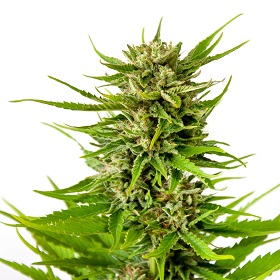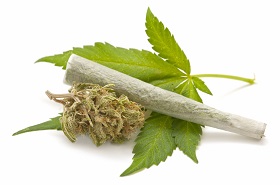Medical Marijuana Concerns in Phoenix
Medical-marijuana facilities may soon have fewer options of where to open in Phoenix, through zoning changes the city is considering in advance of a possible statewide vote to make recreational use of the drug legal. Wochit
Medical-marijuana facilities may soon have fewer options of where to open in Phoenix, through zoning changes the city is considering in advance of a possible statewide vote to make recreational use of the drug legal.
The city’s planning and development department is proposing stricter regulations for new dispensaries, cultivation sites and infusion facilities. Industry advocates say the changes would make it even more difficult to find locations where they could operate.
New medical-marijuana sites would have to be farther from places of worship and residential areas, if the changes are approved. They also would have to follow new requirements on their distance from day-care centers, homeless shelters and youth community centers.
The proposed changes are driven in part by the Regulation and Taxation of Marijuana Act that could go to voters in November, Planning and Development Director Alan Stephenson said. The initiative would allow adults 21 and older to buy, grow and possess marijuana — which would be taxed — with certain restrictions.
The Campaign to Regulate Marijuana Like Alcohol is still collecting voter signatures to qualify the initiative for the November election.
Phoenix would draft new zoning requirements for recreational uses if the act is passed by voters. But existing medical-marijuana dispensaries would have the right to operate as recreational dispensaries, as the initiative is written now.
That means Phoenix needs to prepare, Stephenson said. The city’s Planning Commission will consider the stricter zoning rules April 7, with a possible vote by the City Council later this month.
“We need to be a little more cautious in how we treat these things,” Stephenson said.
Medical marijuana in Phoenix
Effects on neighborhoods a big concern
City Council members have asked staff to move swiftly on drafting tougher regulations.
Several have raised concerns about how the legalization of recreational marijuana would affect Phoenix neighborhoods, and said the city should be prepared for the initiative to pass.
The city has more than a dozen medical-marijuana dispensaries. Many dispensaries in other parts of the state can now relocate, driving requests for more.
When state voters passed the Arizona Medical Marijuana Act in 2010, dispensaries were limited to one per geographic region— called Community Health Analysis Areas — as designated by the Arizona Department of Health Services. Dense cities like Phoenix have more analysis areas than other parts of the state.
Dispensaries are allowed to locate anywhere in the state after three years of operation, with most now meeting that requirement.
part 2
New medical-marijuana facilities will lose some options of where they can locate in Phoenix, under stricter rules approved by the City Council on Wednesday.
Dispensaries, as well as cultivation and infusion businesses, will have to find sites farther away from residential areas and places of worship than previously required by the city.
Phoenix also added day-care centers, homeless shelters and youth community centers to the list of places a facility must be at least a quarter-mile from.
The City Council voted 8-0 to pass the new regulations with an emergency clause, making them effective immediately. Councilman Sal DiCiccio did not vote.
The changes moved swiftly through the city process as Phoenix prepares for the possible legalization of recreational marijuana through a statewide voter initiative. Updates to the state’s medical-marijuana program mean additional dispensaries could look to locate in the city soon.
Council members denied a Planning Commission amendment to allow cultivation and infusion facilities — where marijuana is processed for products like edible goods — to open closer together, a request of industry leaders. Several city leaders asked if the new regulations could be tougher than those proposed.
The changes will reduce the acreage available for dispensaries from 4.1 percent of the city to 2.3 percent, according to a staff report. For cultivation and infusion facilities, that percentage drops from 13 percent to 11 percent.
“I wish I could do more, but our hands are a little tied,” Councilman Jim Waring said.
New rules as strict as possible
Council members voiced particular concern over the Regulation and Taxation of Marijuana Act that could go to voters in November. If passed, the initiative would legalize recreational use of the drug.
The city would draft new zoning regulations, but existing medical-marijuana dispensaries would be allowed to open as recreational facilities. Waring said he expects to receive neighborhood complaints if that happens.
“We’re doing everything we can to make sure it doesn’t happen to you,” he said.
And the city could see more medical-marijuana dispensary applications soon, said Alan Stephenson, director of the Planning and Development Department.
Dispensaries originally confined to other parts of the state can move after three years of operation. That now includes many of the first dispensaries opened after state voters passed the Arizona Medical Marijuana Act in 2010.
Phoenix also expects the state to release additional dispensary certificates this summer, Stephenson said.
Stephenson said the new rules are as strict as they can be while still allowing medical-marijuana facilities to legally locate within the city. Even tougher regulations could be hard for the city to defend in the case of a lawsuit, he said.
“We can’t use our zoning authority to say, ‘We don’t want those,’ ” Stephenson said.
The changes do not affect facilities already in operation.
Under the new rules, a medical-marijuana facility will have to be 1,320 feet from a place of worship instead of the previous 500 feet. The distance from residential areas doubles from 250 to 500 feet for dispensaries.
The 1,320-foot distance requirement already in place for schools and public parks will apply for day-care centers, homeless shelters and youth community centers.
Dispensaries, cultivation sites and infusion facilities must maintain a one-mile distance from one another. The Planning Commission proposed reducing that to one-third of a mile, based on medical-marijuana industry input.
Demitri Downing, who represents the industry, advocated for that change at the meeting. Landlords are looking to rent out buildings in industrial areas, and the sites have no neighborhood impact, he said.
“You’re encouraging the jobs to go elsewhere,” Downing said of the denial.
Councilwoman Kate Gallego said she foresees the city’s planning decisions to evolve from Wednesday’s vote.
“I am confident we do not have the perfect answers today,” she said.
Criminal Defense Lawyers PLLC
668 N 44th St. Suite 300
Phoenix, AZ 85008
(480) 351-6445

